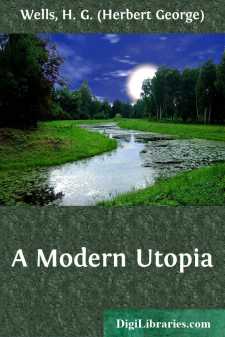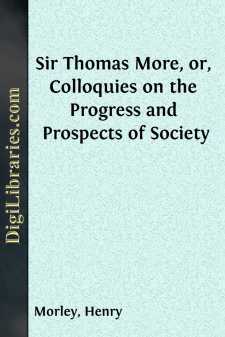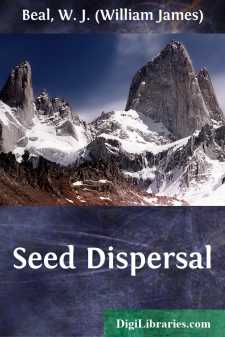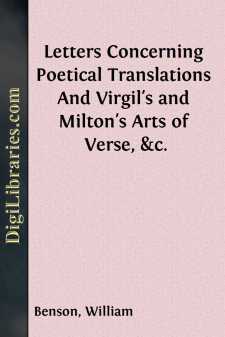Non-Classifiable
- Non-Classifiable 1768
Non-Classifiable Books
Sort by:
This book is in all probability the last of a series of writings, of which—disregarding certain earlier disconnected essays—my Anticipations was the beginning. Originally I intended Anticipations to be my sole digression from my art or trade (or what you will) of an imaginative writer. I wrote that book in order to clear up the muddle in my own mind about innumerable social and political questions,...
more...
ANCIENT BABYLONIAN AND EARLY HEBREW. From the misty ages of bygone centuries to the present day there has been a gradual interlinking of the literatures of different countries. From the Orient to the Occident, from Europe to America, this slow weaving of the thoughts, tastes and beliefs of people of widely different races has been going on, and forms, indeed, a history by itself. The forerunner and...
more...
DETAILS OF TREATMENT. For forty-eight hours after admission to the hospital the patient is kept on ordinary diet, to determine the severity of his diabetes. Then he is starved, and no food allowed save whiskey and black coffee. The whiskey is given in the coffee: 1 ounce of whiskey every two hours, from 7 a.m. until 7 p.m. This furnishes roughly about 800 calories. The whiskey is not an essential part...
more...
by:
Unknown
CASTING ON WITH ONE NEEDLE The first process in knitting is known by the term CASTING ON. There are two ways of doing this: with one needle, and with two. Our first diagram represents the former process. Take the thread between the second and third fingers of the left hand, leaving an end of about a yard for every hundred stitches; pass it round the thumb of that hand, giving it a twist, so as to form...
more...
by:
Walter Runciman
INTRODUCTORY It was a bad day for Spain when Philip allowed the "Holy Office" to throw Thomas Seeley, the Bristol merchant, into a dungeon for knocking down a Spaniard who had uttered foul slanders against the Virgin Monarch of England. Philip did not heed the petition of the patriot's wife, of which he must have been cognisant. Elizabeth refused the commission Dorothy Seeley petitioned...
more...
CHAPTER I. STATE OF WOMEN AMONG THE ARABS OF THE JAHILIYEH, OR THE "TIMES OF THE IGNORANCE." In that eloquent Sura of the Koran, called Ettekwir, (lxxxi.) it is said, "When the girl buried alive shall be asked for what sin she was slain." The passage no doubt refers to the cruel practice which still in Mohammed's time lingered among the tribe of Temîm, and which was afterwards...
more...
[Scene i] Enter Charles the French King, [Catherine] the Queene Mother,the King of Navarre, the Prince of Condye, the Lord highAdmirall, and [Margaret] the Queene of Navarre, with others. CHARLES. Prince of Navarre my honourable brother,Prince Condy, and my good Lord Admirall,wishe this union and religious league,Knit in these hands, thus joyn'd in nuptiall rites,May not desolve, till death...
more...
by:
Henry Morley
It was in 1824 that Robert Southey, then fifty years old, published “Sir Thomas More, or Colloquies on the Progress and Prospects of Society,” a book in two octavo volumes with plates illustrating lake scenery. There were later editions of the book in 1829, and in 1831, and there was an edition in one volume in 1837, at the beginning of the reign of Queen Victoria. These dialogues with a...
more...
CHAPTER I.HOW ANIMALS GET ABOUT. 1. Most of the larger animals move about freely.—When danger threatens, the rabbit bounds away in long jumps, seeking protection in a hollow tree, a log, or a hole in the ground. When food becomes scarce, squirrels quickly shift to new regions. Coons, bears, skunks, and porcupines move from one neighborhood to another. When the thickets disappear and hunters abound,...
more...
by:
William Benson
LETTER I. SIR, am now going to obey your Commands; but you must let me do it in my own way, that is, write as much, or as little at a time as I may have an Inclination to, and just as things offer themselves. After this manner you may receive in a few Letters, all that I have said to you about poetical Translations, and the resemblance there is between Virgil's and Milton's Versification, and...
more...











